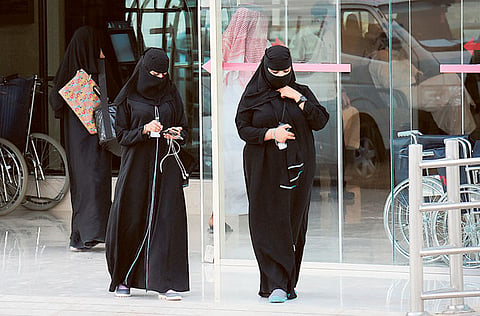Thousands from Bahrain to perform the Haj
Efforts to expand the quota and increase the number of pilgrims continuing

Manama: Bahraini officials said that around 9,000 people have signed up to perform the Haj (pilgrimage) this month.
However, officials said that efforts to increase the number of applicants by expanding the quota are still going on.
An initial attempt to boost the figure beyond the quota set by Saudi authorities was turned down alongside those of 39 other countries, Shaikh Adnan Al Qattan, the head of the official delegation, said.
Riyadh said that increasing the numbers would have negative effects on the Haj season when more than three million people from Saudi Arabia and abroad gather in specific areas in Makkah and its immediate surroundings for the fifth pillar of Islam.
Physically fit and financially able Muslims are required to perform Haj, an annual event, at least once in their lifetimes.
However, a Haj quota was introduced in 1987 following an agreement by all member countries of the Organisation of Islamic Cooperation (OIC) to limit the number of pilgrims allowed by each country to 0.1 per cent of its population.
Manama said that the first group of its official delegation that will oversee the pilgrimage of Bahrainis and Bahrain-based foreigners would leave on Friday.
The medical team, made up of 40 members who include doctors, nurses and a pharmacist, will travel on October 10 and will be available for all pilgrims, Al Qattan said.
Minor cases will be treated at the Bahraini clinic, but the more serious ones will be referred to the Noor Hospital in Makkah and another private hospital in Madinah.
“We have been assured by the Saudi health authorities and regional organisations that there are no health issues this year,” Al Qattan said. “However, precaution and preventive measures are naturally needed. All pilgrims must take the necessary vaccinations.”
Saudi Health Minister Abdullah Al Rabeeah this week said that Saudi Arabia was fully ready to deal with any potential epidemic during the Haj season.
The minister said that the spread of a mystery illness caused by a pathogen similar to the virus that caused the deadly Severe Acute Respiratory Syndrome (Sars) was still limited and that there was no need for concern.
“The ministry is closely monitoring the situation and has taken all preventive measures at the entry point to deal with any potential case,” he was quoted as saying.



